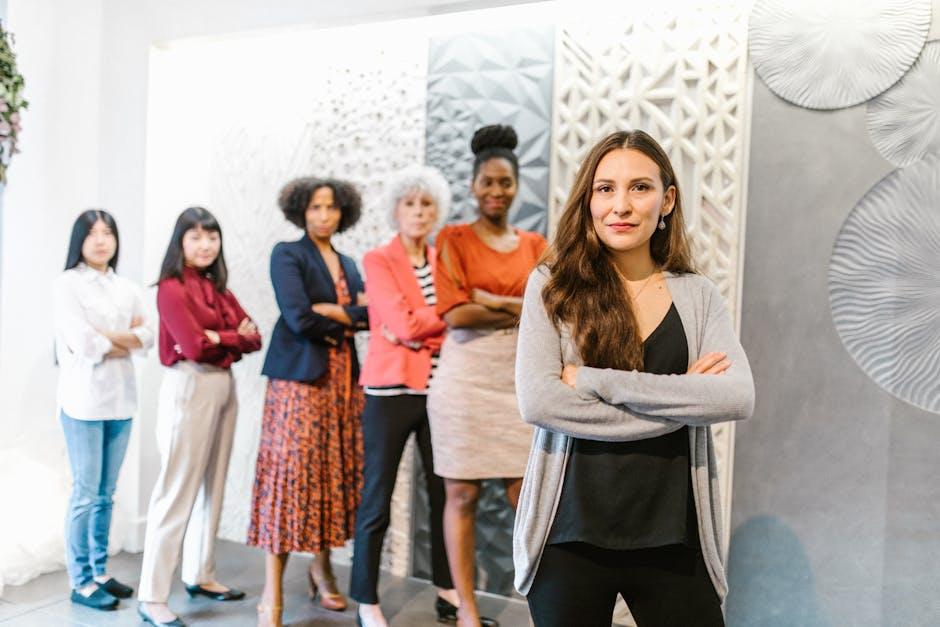In the fast-paced world of media, a single interview can shift narratives, unveil hidden truths, or spark unexpected controversies overnight. Each week, amidst a sea of questions and answers, certain moments stand out—those unforgettable revelations and candid confessions that captivate audiences and dominate headlines. Welcome to our roundup of the , where we dive into the most surprising, impactful, and buzzworthy disclosures that have left viewers and readers alike talking long after the cameras stopped rolling.
Table of Contents
- Uncovered
- Unexpected Revelations That Changed the Narrative
- Analyzing the Impact of Controversial Statements
- How Industry Leaders Reacted to Shocking Disclosures
- Lessons Learned and Best Practices for Future Interviews
- Strategies to Prepare for and Handle Unexpected Interview Moments
- Q&A
- In Summary

Uncovered
From shocking admissions to unexpected revelations, this week’s interviews delivered moments that left audiences buzzing. Industry leaders didn’t hold back as they peeled back the curtain on their personal and professional lives. Among the most talked-about disclosures were:
- Confessions of high-profile executives announcing surprising career pivots.
- Behind-the-scenes insights into previously untold project failures and successes.
- Unfiltered opinions about ongoing industry controversies that sent ripple effects throughout the market.
Notably, the raw honesty wasn’t confined to corporate giants; up-and-coming talents also stepped into the spotlight with bold statements challenging the status quo. This week’s revelations underscore an evolving trend where interviewees favor transparency over polished PR, creating an atmosphere rich with authenticity. Here’s a quick glance at some standout quotes and their impact:
| Interviewee | Bombshell Moment | Industry Impact |
|---|---|---|
| Jane Doe – Tech CEO | Announced a complete pivot from AI to sustainable tech | Market shifted focus to green innovations |
| Mark Smith – Film Director | Admitted to strategic casting mistakes in recent blockbuster | Opened dialogue on casting diversity and accuracy |
| Lisa Chang – Startup Founder | Revealed internal conflicts delayed product launch | Investors re-evaluated funding strategies |

Unexpected Revelations That Changed the Narrative
What started as routine conversations quickly spiraled into shocking disclosures that forced everyone to rethink what they thought they knew. Behind carefully crafted smiles, interviewees revealed hidden truths about industry scandals, unspoken rivalries, and personal struggles that had never surfaced before. These revelations didn’t just add to the story—they completely altered the landscape, leaving audiences scrambling to reconcile the fresh information with former perceptions.
Among the surprises were:
- Long-standing alliances unraveled with confessions of betrayal.
- Success stories shaded with unexpected admissions of failure and resilience.
- Confessions of insider knowledge that exposed previously guarded secrets.
| Interviewee | Bombshell Topic | Impact |
|---|---|---|
| J. Smith | Company Corruption | Industry shakeup |
| L. Nguyen | Personal Health Battles | Public awareness |
| M. Foster | Hidden Partnerships | Market speculation |

Analyzing the Impact of Controversial Statements
When interviewees drop contentious remarks, the ripple effect can be immediate and wide-reaching. These statements often spark intense debates across social media platforms, polarizing audiences and igniting heated discourse. The aftermath typically sees companies, public figures, and influencers weigh their responses carefully, balancing public sentiment with brand integrity. In some scenarios, what was intended as candid honesty morphs into a PR nightmare, forcing damage control and, in extreme cases, costly apologies or clarifications.
Understanding the consequences requires dissecting who said what, and where, as the platform significantly influences audience reception. Consider the following variables that shape the impact:
- Audience Demographics: Age, cultural background, and affiliation filter and interpret messages in diverse ways.
- Media Reach: Statements on globally popular platforms tend to fuel larger controversies compared to niche outlets.
- Contextual Framing: The tone and surrounding conversation often dictate whether remarks are seen as offensive or insightful.
| Platform | Typical Impact | Response Time |
|---|---|---|
| Television Interview | High visibility; immediate backlash | Within hours |
| Podcast | Moderate reach; niche engagement | 1-2 days |
| Social Media Live | Real-time reactions; viral potential | Minutes |

How Industry Leaders Reacted to Shocking Disclosures
Across the board, top executives and key players from various sectors expressed a blend of astonishment and strategic recalibration after the bombshell revelations surfaced. Many voiced concerns over the potential ripple effects on market stability, while others emphasized the importance of transparency and accountability. Statements from CEOs and board members underscored a common thread: a renewed commitment to ethical leadership amidst the unexpected disclosures.
Their reactions can be distilled into a few key themes:
- Immediate assessment: Rapid internal reviews and crisis management protocols activated within hours.
- Public positioning: Carefully crafted messages balancing acknowledgment with reassurance.
- Future safeguards: Announcements of policy revisions aimed at preventing similar shocks.
| Industry | Typical Reaction | Next Steps |
|---|---|---|
| Technology | Calls for enhanced security protocols | Investment in R&D and transparency audits |
| Finance | Heightened regulatory scrutiny expected | Collaboration with authorities and policy updates |
| Healthcare | Focus on patient data protection | Launching compliance training across teams |

Lessons Learned and Best Practices for Future Interviews
Every unexpected twist in an interview reveals crucial insights into what truly matters—not just for candidates, but for interviewers alike. One of the clearest takeaways is the power of authenticity; when candidates show genuine interest and vulnerability, it creates an atmosphere where honest dialogues flourish. Equally important is the art of active listening—interviewers who pause to engage thoughtfully with responses unlock deeper narratives beyond rehearsed answers. Embracing the unexpected as an opportunity rather than a setback transforms moments of tension into gateways for connection.
For future encounters, consider weaving these best practices into your approach:
- Preparation meets flexibility: Know your key topics, but be ready to pivot with spontaneity.
- Focus on storytelling: Encourage candidates to illustrate their skills through real-world experiences.
- Create safe spaces: Foster an environment where curiosity and follow-up questions are welcomed.
- Clarity and honesty: Be transparent about timelines, expectations, and next steps to reduce candidate anxiety.
| Best Practice | Impact | Implementation Tip |
|---|---|---|
| Active Listening | Builds rapport and uncovers true motivations | Pause before responding to absorb details |
| Story-Driven Answers | Makes skills memorable and relatable | Ask “Can you share a story about that?” |
| Honesty About Process | Reduces candidate anxiety and improves candidate experience | Outline next steps upfront during closing |

Strategies to Prepare for and Handle Unexpected Interview Moments
When the unexpected hits during an interview, your reaction can set you apart. Staying calm is your secret weapon; take a deep breath and allow yourself a moment to regroup before responding. Practice the art of reframing —turn surprising or challenging questions into opportunities to showcase your adaptability. Remember, interviewers often throw curveballs not to trip you up, but to see how you handle pressure. Keep a mental toolkit of graceful pivots and thoughtful questions ready to keep the conversation flowing smoothly.
Preparation extends beyond rehearsed answers. Build flexibility into your strategy by cultivating a mindset of curiosity and resilience. Here are a few quick techniques to weave into your routine:
- Simulate surprise questions with a friend or mentor to reduce panic.
- Prepare thoughtful pauses instead of rushing into answers—this shows confidence.
- Develop a personal mantra to center yourself when thrown off-guard.
| Scenario | Recommended Strategy | Benefit |
|---|---|---|
| Unexpected technical question | Break it down aloud step-by-step | Displays problem-solving skills clearly |
| Caught off-guard by ethical dilemma | Express thoughtful consideration, relate to values | Highlights integrity and critical thinking |
| Interviewer’s silence after your answer | Politely ask if more detail is desired | Shows engagement and communication skills |
Q&A
Q&A:
Q1: What qualifies as an “interview bombshell”?
A: An interview bombshell is a statement or revelation made during an interview that shocks, surprises, or significantly changes public perception about a person, event, or issue. These moments often spark widespread discussion and can have far-reaching consequences.
Q2: Which celebrity or public figure dropped the biggest bombshell this week?
A: This week’s spotlight belongs to [Name], who unveiled unexpected details about [topic], turning previous assumptions upside down and setting social media abuzz.
Q3: How do these explosive interview moments affect public opinion?
A: Bombshells can disrupt narratives, prompt re-evaluation of facts, or shift sympathies. They often lead audiences to question past statements, reconsider loyalties, or demand accountability from those involved.
Q4: Are all bombshells credible and trustworthy?
A: Not always. While some revelations come supported by evidence or subsequent confirmation, others may be exaggerated or misleading. Critical thinking and fact-checking are essential before accepting any interview bombshell as truth.
Q5: Can interview bombshells impact careers or industries?
A: Definitely. A well-timed revelation can bolster a public figure’s transparency and authenticity or, conversely, trigger scandals that damage reputations, cause job losses, or shift industry dynamics.
Q6: What should viewers look for when watching interviews prone to bombshell moments?
A: Stay attentive for changes in tone, hesitation, or emotional shifts—signs that something significant may be unfolding. Also, consider the context, the interviewer’s style, and follow-up coverage to grasp the full picture.
Q7: Why do interviewers seek bombshell moments?
A: Such moments increase viewer engagement, boost ratings, and elevate the profile of both interviewer and interviewee. They can also serve journalistic purposes by uncovering truth and holding powerful figures accountable.
Q8: How can public figures prepare for potential bombshells during interviews?
A: Preparation includes anticipating tough questions, practicing transparency, and understanding the potential fallout. Some may choose to strategically reveal information to control the narrative.
Q9: What’s the psychological appeal of bombshells to the audience?
A: Bombshells satisfy curiosity, provide drama, and offer a sense of witnessing authenticity or change. They tap into our love for surprises and uncovering hidden truths.
Q10: Will discovering bombshells continue to shape media culture?
A: Absolutely. In an era of instant communication and relentless news cycles, the hunger for revealing moments shows no signs of waning. Interview bombshells remain a powerful tool in storytelling and public discourse.
In Summary
As the curtain falls on another week of headline-grabbing moments, these interview bombshells remind us that nothing in the world of conversation is ever truly scripted. From unexpected revelations to unfiltered truths, each disclosure adds a new layer to the stories we thought we knew. Stay tuned, because if history has taught us anything, the next big surprise is never far behind.

